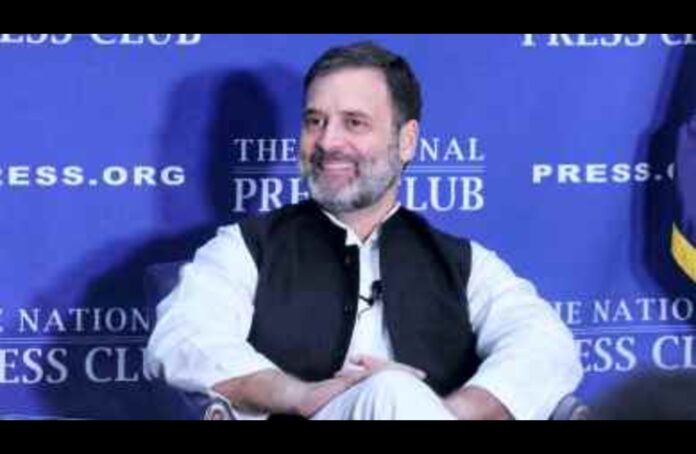In a recent development that has sparked political discussions across the nation, Rahul Gandhi, the prominent leader of the Indian National Congress (INC), has drawn attention for his alleged collaboration with the Muslim League, a secular political party. The news has generated significant concerns among various factions, particularly those aligned with the Bharatiya Janata Party (BJP), who view this alliance as a potential threat to the country’s political landscape.
The controversy surrounding Rahul Gandhi stems from a series of meetings he reportedly held with representatives of the Muslim League. The Congress leader’s engagement with the Muslim League, a regional party based in the southern state of Kerala, has raised eyebrows due to the latter’s specific religious affiliation. Critics argue that the alliance may compromise the Congress party’s secular image and further deepen communal fault lines in the country’s political discourse. Several BJP leaders wasted no time in seizing the opportunity to criticize Rahul Gandhi’s alleged collaboration. They claim that this partnership demonstrates the Congress party’s willingness to appease religious minorities at the expense of the majority, thereby playing divisive politics.
Accusations of vote-bank politics have also been hurled at the Congress leader, as opponents argue that the alliance with the Muslim League is a strategic move to secure Muslim votes in upcoming elections. Supporters of Rahul Gandhi and the Congress party, on the other hand, defend the engagement with the Muslim League as a legitimate effort to foster a broader alliance against the BJP’s dominant political influence. They contend that alliances among political parties are a regular occurrence in Indian politics and are essential for building a united front against a common opponent. Proponents argue that such partnerships are based on shared ideologies and policy goals, rather than religious considerations. Nonetheless, the controversy has ignited a broader debate on the role of religion in politics and the potential implications of religiously aligned alliances.
Critics argue that alliances based on religious lines have the potential to undermine India’s secular fabric and weaken the concept of equal representation for all citizens, regardless of their religious affiliations. They stress the importance of maintaining a secular political environment that upholds the principles of inclusivity and equality. As the news of Rahul Gandhi’s alleged collaboration with the Muslim League continues to circulate, it remains to be seen how this development will impact the political dynamics in the country. The Congress party’s response and Rahul Gandhi’s clarification on the nature of the engagement will be closely watched by both political observers and the public at large. Ultimately, the consequences of this alleged alliance will unfold in the coming months, potentially influencing the political landscape in India.


